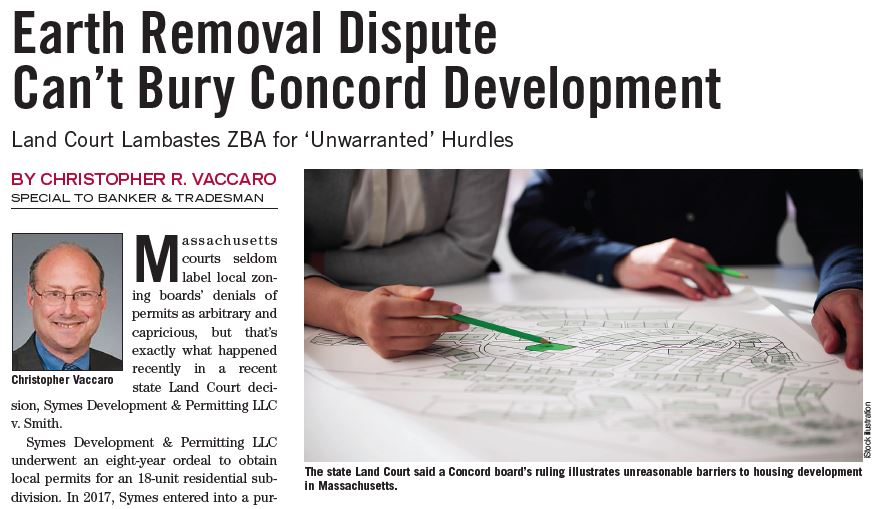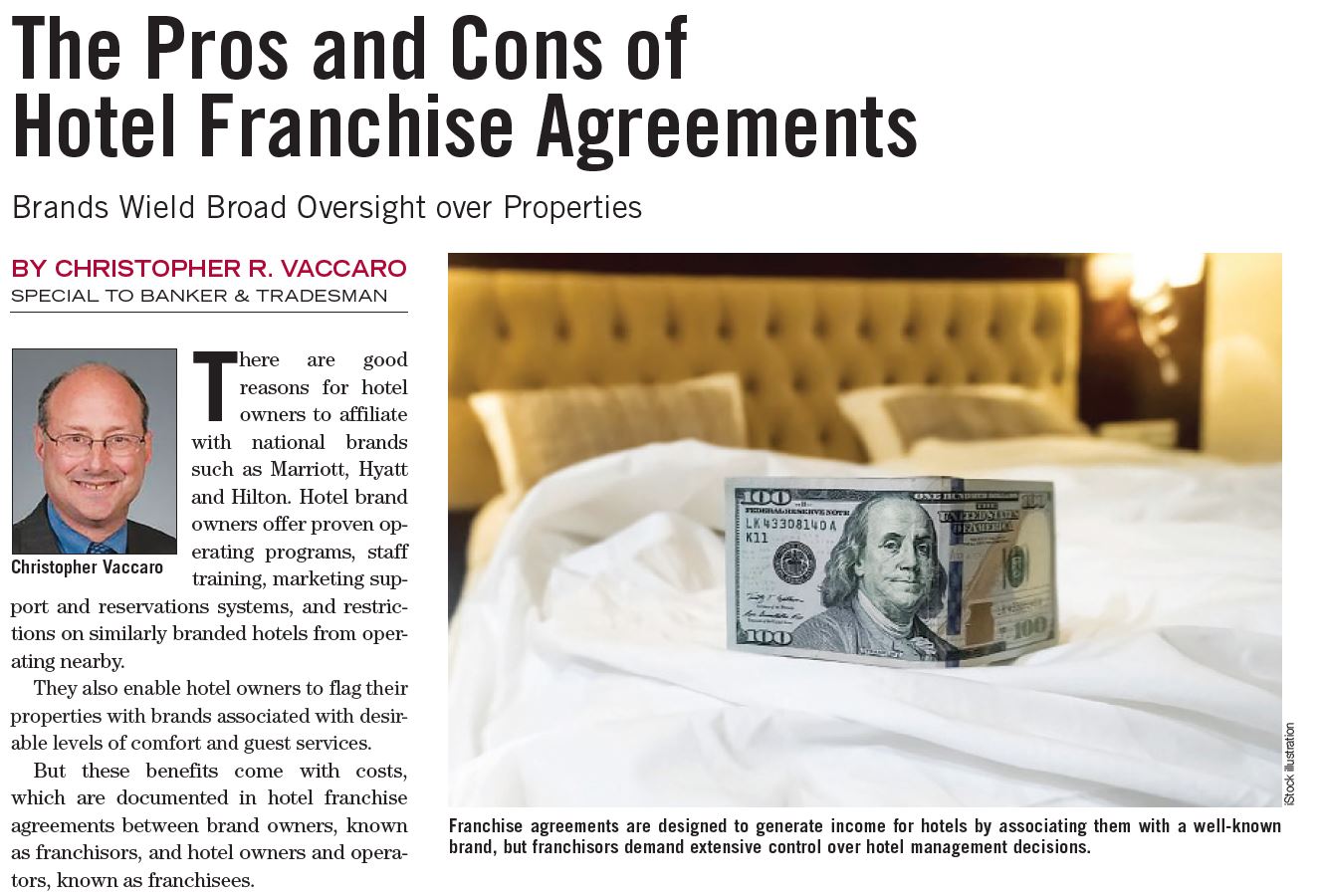Land Court Lambastes ZBA for “unwarranted” Hurdles
Massachusetts courts seldom label local zoning boards’ denials of permits as arbitrary and capricious, but that’s exactly what happened recently in a recent state Land Court decision, Symes Development & Permitting LLC v. Smith.
Symes Development & Permitting LLC underwent an eight-year ordeal to obtain local permits for an 18-unit residential subdivision. In 2017, Symes entered into a purchase and sale agreement for eight acres near the West Concord commuter rail station.
Symes prepared an 18-lot subdivision plan for the property, with all lots conforming to Concord’s zoning requirements. The subdivision plan did not require any waivers from the Concord planning board.
The Case at Hand
In 2020, the Planning Board approved the subdivision plan, but with conditions requiring that Symes reserve three lots for affordable housing and two lots for a park, for a three-year period without compensation to Symes.
The Planning Board also conditioned its endorsement of the subdivision plan on Symes obtaining an earth removal permit from the Concord Zoning Board of Appeals. Symes appealed these conditions to the Land Court, which ruled in Symes’ favor the following year, annulling the board’s conditions to the plan approval.
Meanwhile, Symes applied for the earth removal permit from the ZBA. Symes’ site presented topographical challenges, requiring the removal of 60,000 cubic yards of earth to build the subdivision. This vastly exceeded Concord’s 1,000 cubic yard limit for as-of-right earth removal. The ZBA conducted hearings on Symes’ application during the spring and summer of 2021, and denied Symes by a 3-0 vote. Symes returned to the Land Court to appeal the denial.

Symes’ appeal of the ZBA decision made its way through the Land Court over the next three years, with a trial in April 2024, followed by post-trial briefs and closing arguments last fall. The Land Court issued its decision in favor of Symes in January.
The court’s decision comes in an environment where towns are implementing the MBTA Communities Act, which requires municipalities with MBTA service to create zoning districts with higher density housing, and the state Legislature recently passed the Affordable Homes Act, which allows single-family zoned properties to add accessory dwelling units and offers numerous other housing production incentives.
Political Emphasis on Housing Production
These statutes are a legislative response to a recognized housing shortage in Massachusetts. Gov. Maura Healey is also clearly committed to finding ways to promote housing development. The Land Court’s decision in the Symes case can be regarded as a judicial response to the housing shortage.
The Land Court did not hide its disappointment with the ZBA’s denial.
“Those who lament the barriers to the construction of […] housing, and the sometimes unwarranted regulatory hurdles that contribute to making housing in Massachusetts even more expensive than it might otherwise be, might point as an example to the saga of [Symes] in its efforts to develop an 18-lot residential subdivision […],” the first sentence of its decision reads.
Court Dismantles ZBA’s Arguments
After this opening, the court systematically dismantled every argument that the ZBA offered in its defense.
The court reserved special criticism for the ZBA’s noise expert, who had testified that Symes’ earth removal would unleash excessive noise in the neighborhood of passing commuter trains. The court noted that the ZBA’s noise expert failed to consider ambient neighborhood traffic noise and the buffering effect of new homes on sound transmission.
But the court did not stop there. It also took judicial notice that the ZBA’s noise expert had offered a contradictory expert opinion in an unrelated case before the same Land Court judge, involving a warehouse development in Lakeville.
In that case, the expert’s firm represented the developer trying to build the warehouse, instead of the town. The court noted that the ZBA’s noise expert’s opinion in the Lakeville case actually supported testimony of Symes’ noise expert in the Concord case, which undermined the ZBA’s noise expert’s credibility.
After rejecting the ZBA’s legal arguments and humbling its noise expert, the court concluded that the ZBA’s denial was “legally untenable, arbitrary, capricious, unreasonable, and otherwise beyond the proper exercise of [its] authority.” The court annulled the ZBA’s decision and ordered the ZBA to issue the earth removal permit.
This decision shows judicial concern about roadblocks that housing developers often face from municipal boards. It suggests that such roadblocks could face increased skepticism from the courts. If this is the case, maybe fewer housing developers will be forced down regulatory rabbit holes with expensive litigation, to get their projects approved.
Download the article as seen in Banker & Tradesman on March 31, 2025. Learn more about Christopher R. Vaccaro.










